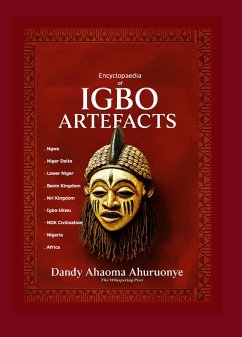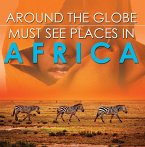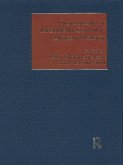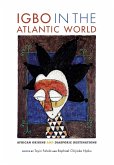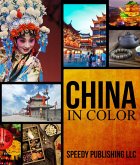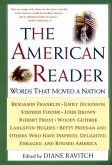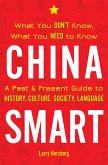Egbe bere, ugo bere. Nke sị ibe ya ebela, nku kwaa ya. Let the eagle perch, let the kite perch. Whichever denies the other a resting place, may its wings break. In this spirit of co-existence, the metallurgical marvels of ancient Igbo-Ukwu are presented not in isolation, but in concert with the profound ritual philosophies of the Nri civilisation. Together, they reveal how material form and immaterial meaning are indelibly fused. Explorations of the Ikenga, Ùlì body art, and Nsibidi script unfold as a visual grammar of ethics, identity, and world-making. Similarly, entries on the New Yam festival, the palm wine calabash, and the kola nut ceremony demonstrate that in Igbo thought, nourishment and veneration are inseparable; these are not mere curios but artefacts of life, law, and spiritual congress. This work confronts difficult histories with intellectual courage. Chapters addressing generalised attribution, the repatriation of looted relics, and the decolonisation of artefacts posit that institutional custody of relics is not an ethical conclusion, but rather a provisional arrangement in need of moral realignment. The assertion is both simple and profound: while artefacts may dwell in glass cases, their primary allegiance and ontological claim remain ancestral. Methodologically, the encyclopaedia synthesises meticulous fieldwork, archival retrieval, and penetrating formal analysis. Its essays, authoritative yet infused with a deep humanity, offer artists, curators, and community custodians not only a source of inspiration but also a clarion call to responsibility. Themes such as cultural revival, Neo-Nsibidi practices, and the transformative journey of the explorer who became an artefact and consequently part of the narrative chart a vibrant cartography that connects ancient ingenuity with contemporary expression.
Spanning fifty chapters, from the historical crucible of the Anglo-Aro War and the legacy of King Jaja of Opobo to meditations on the symbolism of the Phoenix and the aesthetics of the bare skin, this volume stands as both a monumental scholarly achievement and a poetic repository. It is an invitation to reimagine the artefact: not as an inert specimen, but as a companion to memory, a vessel for ancestral voices, and a persistent ethical summons. Okwu bụ ndụ: word is life.
Let the objects narrate their histories. Let the proverbs illuminate the path. Step into a volume where meticulous scholarship and profound reverence are held in exquisite balance.
Dieser Download kann aus rechtlichen Gründen nur mit Rechnungsadresse in A, B, CY, CZ, D, DK, EW, E, FIN, F, GR, H, IRL, I, LT, L, LR, M, NL, PL, P, R, S, SLO, SK ausgeliefert werden.

